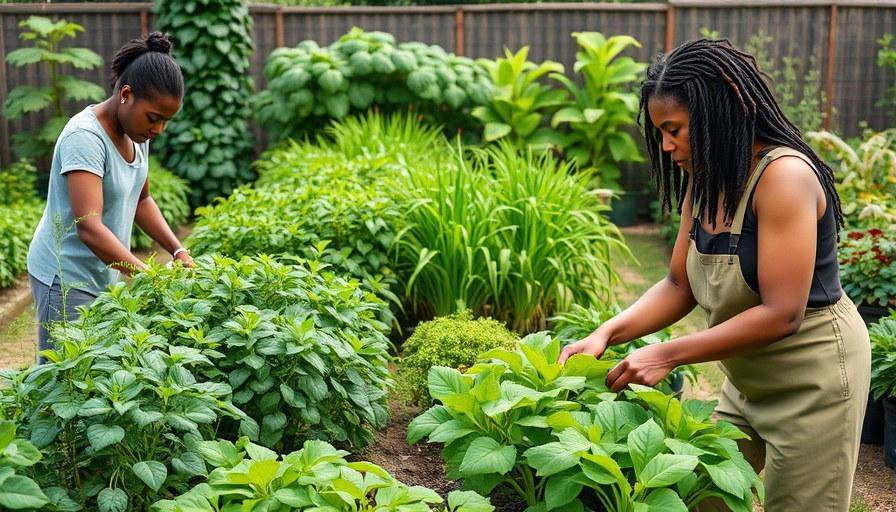
Community Gardens: Innovations and Ideas from Urban Green Spaces
As urban living becomes increasingly prevalent, community gardens offer a vital antidote to concrete jungles, fostering not just greenery but a rich sense of connection among neighbors. These vibrant spaces serve as living laboratories for gardening enthusiasts, transforming shared plots into showcases of creativity, sustainability, and shared wisdom. Here, we explore inspirational ideas sourced from the thriving community gardener movement that can enhance your own gardening efforts.
Thrive in Small Spaces: Ingenious Solutions for Urban Gardening
Community gardens are often characterized by their diversity and adaptability, with unique strategies that make the most of limited space. Vertical gardening techniques—where plants grow upward on trellises, walls, or even stacked shelves—allow city dwellers to cultivate a variety of crops in compact areas. Whether you're working with a balcony or a small backyard, incorporating vertical gardening can exponentially increase yields while making a beautiful statement. By experimenting with pole beans, cucumbers, and strawberries, urban gardeners have demonstrated how creativity can lead to flourishing green-thumb triumphs.
Companions and Containers: Crafting Perfect Plant Partnerships
In community gardens, the concept of companion planting thrives, as it promotes healthier plants through mutual support and natural pest control. For example, the classic trio of tomatoes, basil, and marigolds not only enhances flavors but also improves growth outcomes. Container gardening has emerged as another favored method, where herbs and vegetables thrive in pots that can be shifted to maximize sunlight. Try integrating colorful containers filled with edible ingredients near your entryways or balconies to foster an inviting ambiance.
Creating Sustainable Practices in Your Own Backyard
Many community gardeners are pioneers in organic gardening principles, employing sustainable practices like composting, crop rotation, and organic pest management. Composting not only reduces food waste but enriches soil with vital nutrients, ensuring your garden produces healthy, bountiful harvests. Urban gardeners often create compost systems using food scraps from their own kitchens and communal materials. Implementing these eco-friendly practices in your home gardening routine strengthens your commitment to sustainability while contributing positively to the environment.
Emotional and Social Connections: More Than Just a Garden
The act of gardening itself is therapeutic, providing mental respite and a creative outlet, but community gardens extend these benefits through meaningful social connections. They serve as gathering spaces where neighbors collaborate and share knowledge, whether that means teaching each other new gardening techniques or swapping seedlings and tips. These interactions foster friendships that grow alongside the plants cultivated within the gardens. They nurture a sense of belonging, a precious element often absent in busy urban lives.
Planning for Your Future Garden: Trends and Innovations
As you embark on your gardening journey, it's essential to remain aware of shifting trends in urban agriculture. Innovations like hydroponics and aquaponics are gaining traction, allowing individuals to grow food in water without the need for traditional soil. Additionally, the rise of “edible landscaping” transforms gardens into spaces that are attractive and productive. Observing these trends through local community gardens can inspire your vision and motivate you to introduce modern techniques into your backyard.
Taking Action: Bringing Community Garden Ideas to Life
Ultimately, the most remarkable aspect of community gardening is its capacity to empower individuals. Don’t feel intimidated by the thought of starting a garden; remember, every professional gardener once began as a novice. Start small by planting just one herb or vegetable and gradually expand your garden as you learn. Engage with local gardening groups or join community garden initiatives to share resources and recommendations. With each seed you plant and every neighbor you connect with, you not only enhance your personal growth but contribute to a broader movement of community and environmental stewardship.
As Emma Fitzgerald advocates, garden cultivation leads to self-sufficiency while deepening community ties. If you’re inspired by the ideas shared, consider starting your garden today. Dive into the enriching world of gardening, not just for the produce, but for the relationships you will foster along the way.
 Add Row
Add Row  Add
Add 




 Add Row
Add Row  Add
Add 

Write A Comment